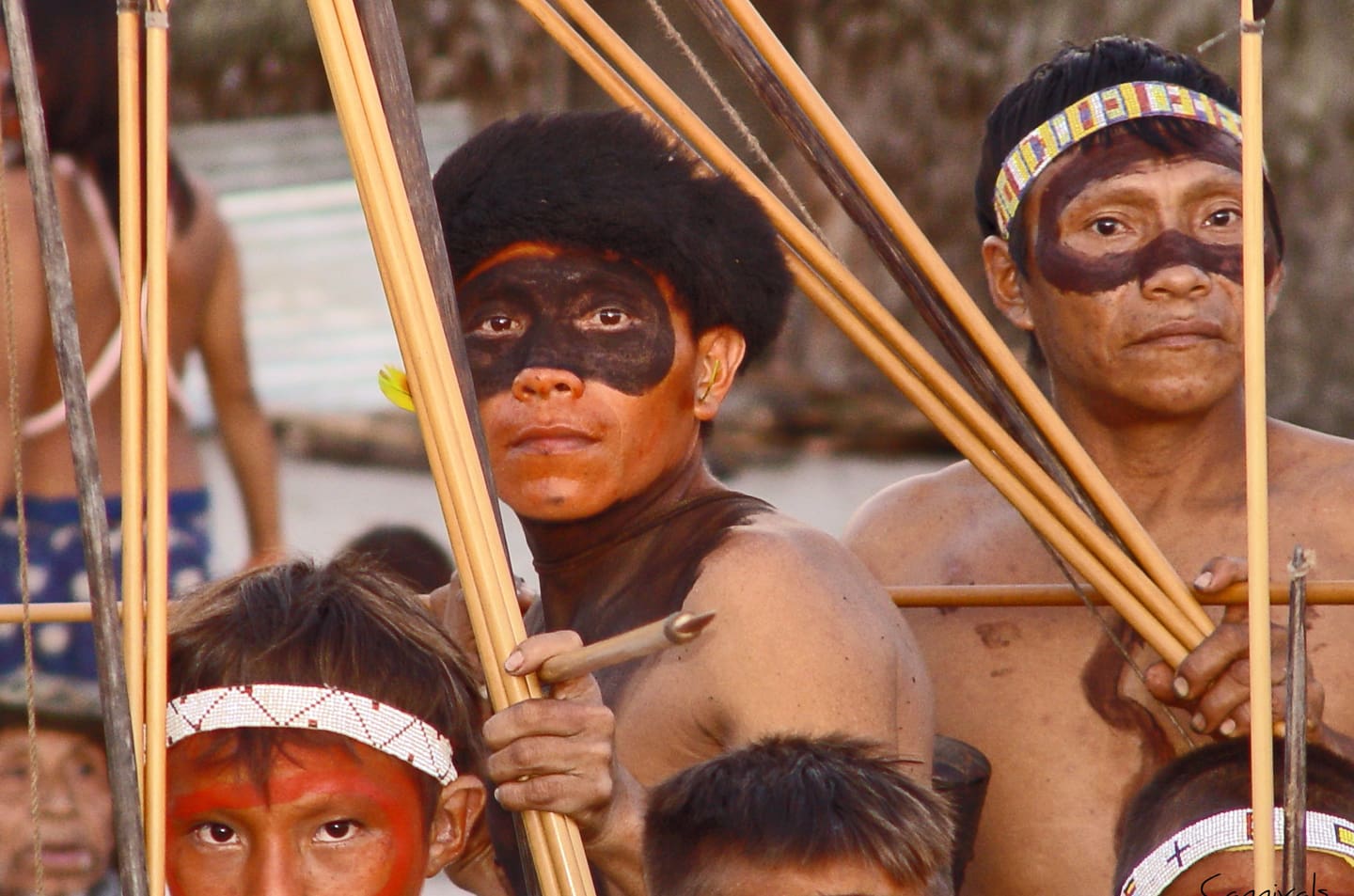Brazilian federal police are investigating a “genocide” against the Yanomami people after it emerged that nearly a hundred children from the Indigenous group had died, according to the Justice Ministry of the country.
The announcement came after a government report revealed that at least one hundred Yanomami children living on Brazil’s largest Indigenous reservation — all under the age of five — died last year from malnutrition, pneumonia and malaria.
Newly inaugurated President Luiz Inácio Lula da Silva described an “inhumane” scene after himself visiting the community in the northern Amazonian state of Roraima.
Yanomami territory, home to more than 30,000 Indigenous people, stretches 37,000 square miles (96,000 square kilometers) between Roraima and Amazonas states.
Conditions on the Yanomami reservation have become increasingly violent, with illegal miners regularly killing Indigenous residents, sexually abusing women and children, and contaminating the area’s rivers with the mercury used to separate gold from sediment, according to complaints from Indigenous organizations.
The increase of illegal mining in the Amazon has also driven the spread of diseases such as malaria, tuberculosis, and Covid-19 among this population.
Indigenous Peoples’ Rights in Brazil
According to the 2010 census of the Brazilian Institute of Geography and Statistics, there are 896,917 Indigenous persons in Brazil. The country voted in favor of the United Nations Declaration on the Rights of Indigenous Peoples (2007), and the American Declaration on the Rights of Indigenous Peoples (2016) and has signed ILO Convention 169.

The Constitution of 1988 recognizes the Indigenous peoples as the first and natural owners of the land and guarantees them their right to land. Exploration and extraction of mineral wealth on Indigenous lands must be carried out solely with authorization from the National Congress after listening to the communities involved, who must be guaranteed participation in the benefits of the mining activities. Eviction of Indigenous peoples from their lands is prohibited.
Indigenous Peoples in Brazil
There are 896,917 Indigenous persons in Brazil, distributed among 305 ethnic groups. The principal indigenous ethnic group is the Tikúna, who comprise 6.8% of the total indigenous population.
There are around 274 languages. Among Indigenous persons over the age of five, only 37.4% speak an Indigenous language, while 76.9% speak Portuguese. It is estimated that there are 115 peoples living in isolation,1 of which 28 are confirmed and the rest are in the process of being identified.
502,783 individuals out of the Indigenous population in Brazil live in rural zones and 315,180 in urban zones. A total of 505 Indigenous Lands have been identified, covering 12.5% of Brazilian territory (106.7 million hectares). The majority of these territories are concentrated in the Amazon.
Brazil is the country in South America with the largest known concentration of Indigenous Peoples in isolation in the states of Acre, Amazonas, Amapá, Goiás, Maranhão, Mato Grosso, Pará, Rondônia, Roraima, and Tocantins. Currently, there are 107 records of the presence of Indigenous Peoples in isolation in the Amazon region.
Fonte: AFP and IWGIA


